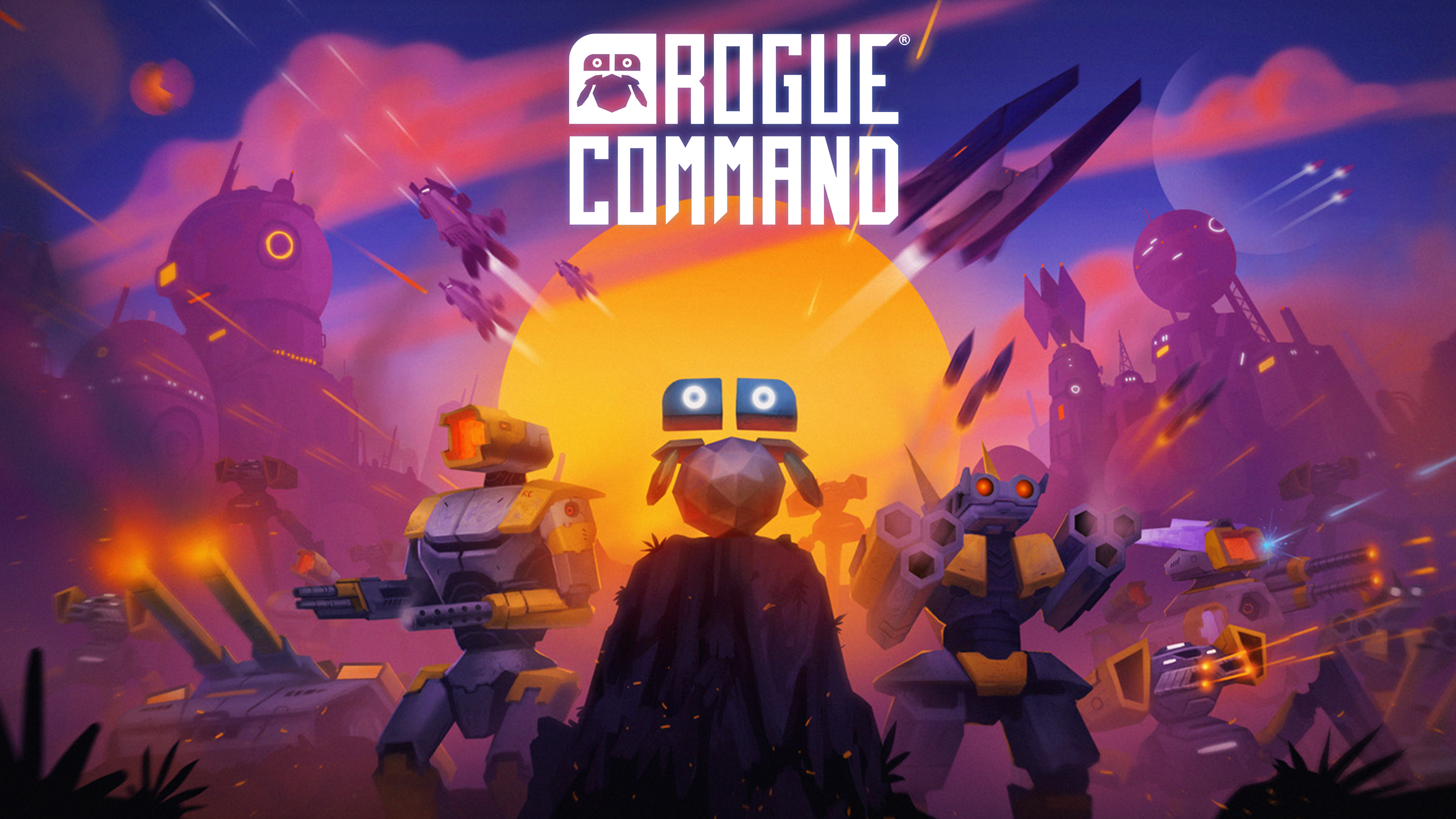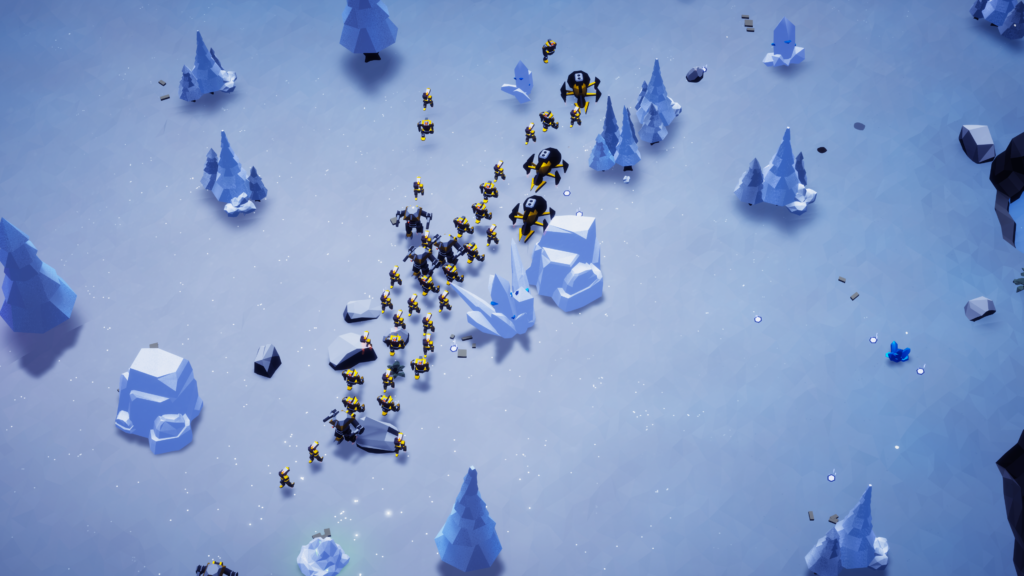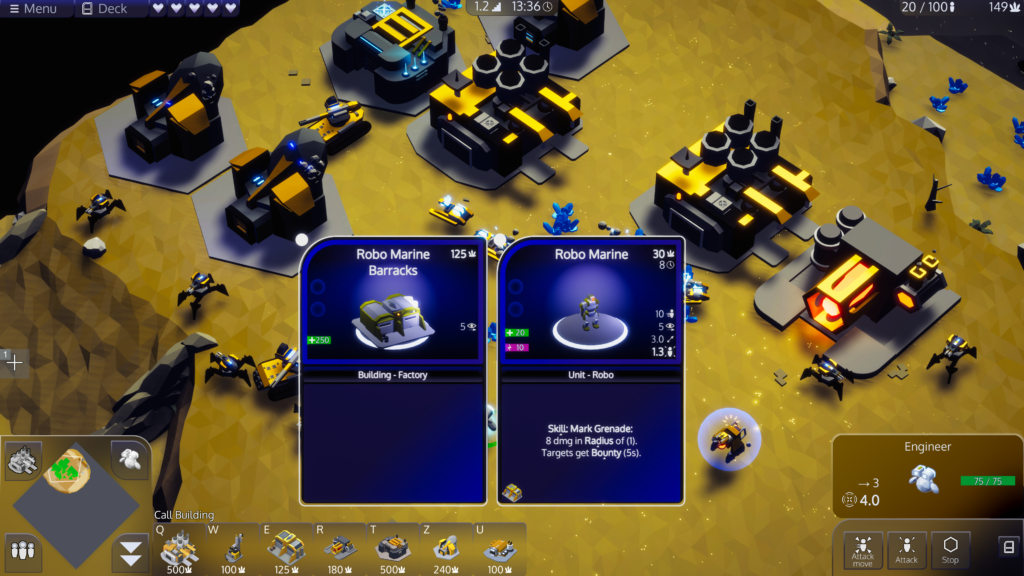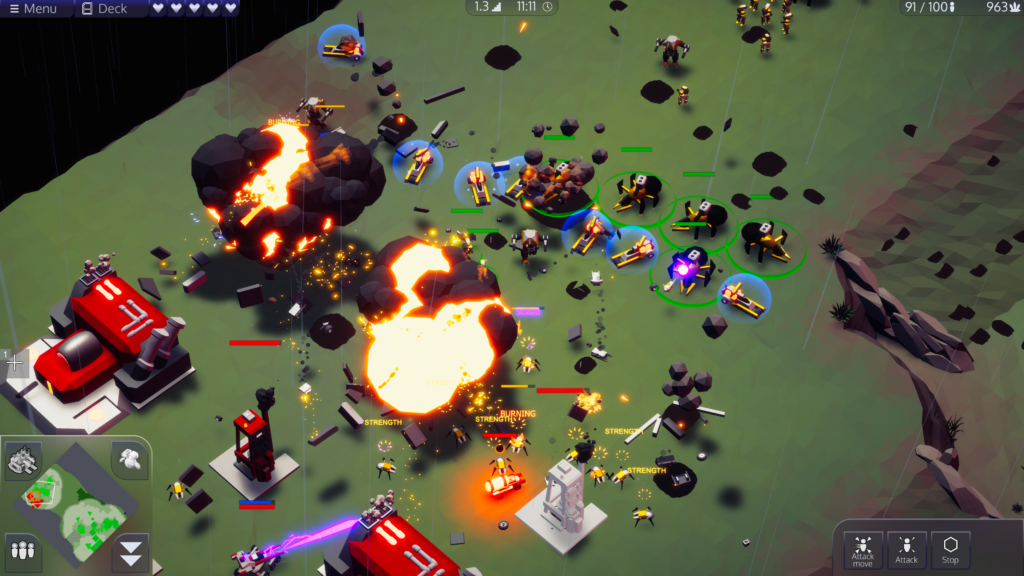The second computer game I ever owned for the PC was, it later turned out, a revolutionary classic. As an awkward nine-year-old I didn’t realise it at the time, but Total Annihilation redefined real-time-strategy games when it was released, showing just how cinematic the genre could be. Its legacy has lasted to this day, not least of all in Rogue Command, a new strategy game by feneq.
Rogue Command is genuinely quite delightful, and brought back echoes of emotions from the first time I played Total Annihilation. Unit-specific factories, continuous resource collection and a focus on massed mechanical massacres takes a great deal of inspiration from past masters, but with modern innovations such as rogue-like campaigns, deck-building army rosters and some excellent quality-of-life features that make the game much smoother to play.
The game captures a much more relaxed aesthetic than the epic wargames of old, however. The low-poly graphics are charming, as is the upbeat synthwave soundtrack which borrows a lot from the likes of FTL. Special effects are simple but fun – explosions have weight to them, crystals glow enticingly, and factories cough little bursts of fumes in ways that invoke the industry of war whilst still remaining easy on the eyeballs.
Gameplay is speedy by design – missions give you only 15 minutes to annihilate your enemy, maps are small and units fast, both to move and to build. Quick-fingered micromanagement is the key to success, and strategies generally focus on building up your forces as quickly as you can whilst fending off increasingly lethal waves of enemy warmachines. Your strategies develop as you complete missions and unlock more cards for your deck, increasing the options available, and that is certainly a necessity as the difficulty of each mission increases and you are faced with more exotic and deadly enemies.
The full deck-building features were not available in the preview copy made available so it is difficult to comment on that aspect of the game in full. What can be commented on is the overall slick experience of playing Rogue Command. Missions are simple, and generally over in 10 minutes or less, granting an ever-evolving gameplay experience as more units are unlocked. In addition to units, new abilities, both unit-specific and global, can be unlocked, and these can subtly boost certain strategies or change them altogether.
The campaign in the preview is a simple, sequential affair, although a branching campaign tree is promised in the full version with the ability to pick your next mission. Presumably this would add further depth to the strategy – and hopefully, as the similarity of missions has a danger of growing repetitive for longer gaming sessions. This is definitely a game suited to short bursts of play: a couple of missions over a lunch break, perhaps, or as a palate-cleanser between meatier, more in-depth titles.
With low barriers to entry and a lovely bit of art design, I will definitely be going back to this game when I feel like some high speed, low intensity strategy. I’m looking forwards to the game’s release, and the chance to review all of the planned features in full.




